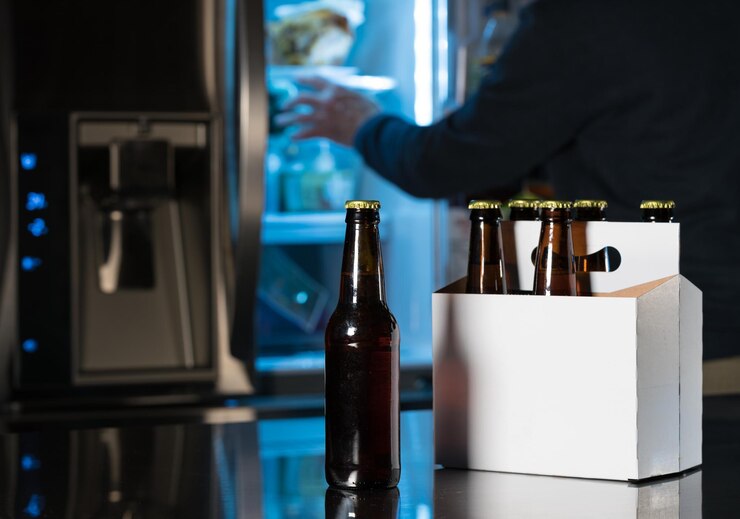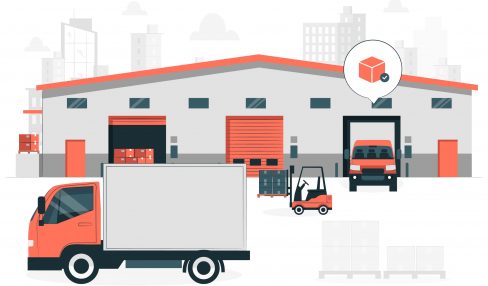What You Need To Know About Delivery Of Drinking Beverages?
11 September 2023
7 Mins Read

toc impalement
So, you’re thinking of venturing into the booming sector of beverage delivery service? That’s an excellent idea! This evolving industry can be a gem for entrepreneurs like you who are willing to navigate its unique challenges.
However, just as with any business involving alcohol, many legal and logistical factors exist, such as obtaining permits and even RBS certification online.
You must understand off-premise alcohol sales regulations when obtaining necessary licenses and tools before diving headlong into this venture. Let’s help you gain a firm footing in drinking beverage delivery.
Whether picking out a perfect drink menu or crafting a snack selection to accompany the beverages, this article drew insights from years of industry experience that will set you on course.
With all these in mind, we will guide you through choosing the right delivery methods while you ensure compliance with the state and local guidelines. So, without further ado, let’s get started.
Rules Of Off-Premise Alcohol Sales
It’s important to note that off-premise alcohol sales aren’t free-for-all. Imagine having a tightly regulated marketplace where beer, wine, or spirits bottles should follow strict rules before they land in the customer’s hands.
The regulations that govern these sales are designed to protect both consumers and businesses from potential harm. Each state has its liquor control commission or similar agency for enforcing these laws.
They even have permits and RBS certification online as part of the requirements. For instance, many states would require buyers to be at least 21 years old, prohibit sales during certain hours (often late at night or early in the morning), and restrict advertising targeting minors.
Furthermore, most states have specific licenses for off-premise alcohol retailers such as liquor stores and grocery chains. These licenses often include additional responsibilities like ensuring staff are trained to check IDs properly and refusing service to intoxicated customers.
Do not forget about taxes – alcohol is a heavily taxed commodity, with each state setting tax rates that sellers must account for in their pricing.
So whether you’re considering starting your own beverage delivery business or just curious about the process involved in getting that six-pack delivered to your doorstep – understanding the legal landscape is vital in this industry.
How To Legally Start An Alcohol Delivery Service

Getting into the world of alcohol delivery services isn’t just about having a wide selection of spirits and a reliable transportation system; it’s also about mastering the nature of legal requirements that may vary greatly from one location to another.
Before anything else, you must check your local liquor laws since these dictate what you can and can’t do regarding alcohol delivery. Some areas may prohibit this service altogether, while others require special licenses or permits. Remember that selling alcohol without the appropriate license is illegal and could result in fines or jail time.
Once you’ve sorted out the legal aspects, develop an efficient way to verify customers’ age as part of your ordering process. It’s illegal everywhere to sell alcohol to anyone under 21 in the U.S.
You must invest in advanced ID verification technology to help ensure compliance with the regulations. You must also train your delivery personnel to check IDs at the point of delivery effectively.
Lastly, always remember that transparency is key. Make sure all fees are disclosed based on receipts and online platforms. You should include any additional charges for deliveries.
This builds trust with your customers and ensures you’re following trade practices outlined by the Federal Trade Commission (FTC) guidelines on advertising prices.
Check With The State And Local Guidelines
Navigating the waters of state and local guidelines may feel like steering a ship through a storm. However, it’s vital to ensure that alcohol distribution operation remains on the right side of the law.
Each state has its unique set of rules and regulations regarding alcohol delivery. You need to familiarize yourself with detailed laws and any county or city ordinances that may apply.
Remember that penalties for non-compliance may be severe, including hefty fines or even loss of your liquor license. With that, you have to stay informed about the changes in legislation, for it’s not just about knowing the current rules but about being updated as they evolve.
Obtain Licenses And Delivery Tools
Securing all necessary licenses and equipping your business with the right delivery tools is another crucial step to setting up an alcohol distribution operation.
In most regions, you’ll need to obtain a liquor license or a similar permit to legally sell and distribute alcoholic beverages. The requirements vary by state, so looking into your local regulations is essential. Some states may require additional permits if you deliver across state lines.
It’s also important to understand the legal age limit for drinking in the area affecting who you can deliver to. And regarding delivery tools, consider investing in high-quality coolers or insulated bags to keep drinks at the optimal temperature during transit – especially important for certain wines and beers.
You have to utilize reliable tracking software for deliveries because it will not just help improve operations but also provide transparency and peace of mind for customers.
You should also have an efficient system to check IDs upon delivery to ensure compliance with age restrictions. Remember that a successful beverage delivery is about maintaining product quality while ensuring seamless service and compliance with laws – so be thorough when choosing your equipment and systems!
Establish An Appropriate Delivery Method
Paving the way for the alcohol distribution venture also involves finding a suitable method to get products into the customers’ hands. You have to remember that it’s not just about the speed but also about maintaining that quality cold beer or preserving the sophisticated notes of fine wine.
You may also opt for direct delivery, where you will be responsible for getting customer orders. This will give you complete control over handling beverages and allow immediate response to customer feedback.
However, this option also requires substantial investment in vehicles, personnel training, and refrigeration equipment to ensure temperature-controlled transport specific to each beverage type.
Remember, though, whichever delivery way you choose – it requires careful planning and diligent execution on your part. Hence, every sip that your consumers will take remains memorable and satisfying till the last drop.
Choose A Drink Menu Wisely

Crafting a thoughtful and enticing drink menu isn’t just about throwing together an array of popular choices; it’s a strategic move that can significantly impact your alcohol distribution business’s success.
The trick lies in striking the right balance between crowd-pleasers and unique offerings while maintaining quality standards. With that, you must consider your target audience, their preferences, and how different beverages complement one another.
You should do extensive market research to understand in-demand drinks in your region, for these will likely be high-demand items. Also, consider seasonal variations – lighter beers or refreshing cocktails for summer and heavier stouts or warm mulled wines for winter.
Choosing a beverage menu also involves practical considerations like pricing, packaging, storage requirements, and shelf life of the products. The same goes for exotic drinks that will encourage customers, but they often come with higher prices because of import costs and rarity, thus potentially affecting your overall profit margins.
You have to keep in mind that every choice you make should align with the goals of your business while you satisfy customer demands at the same time.
Come Up With A Snack Menu
Curating a snack menu that would perfectly partner with your drink offerings will not just enhance your customers’ overall experience, but it could also boost your sales.
As such, you must consider what snacks will complement the beverages you serve. You may consider pairing craft beers with hearty snacks like pretzels or gourmet sausages if you also deliver craft beers. If you’re offering fine wines, cheese platters, and charcuterie boards make excellent accompaniments.
You may also consider how easy the snacks are to transport and consume. Go for items that maintain quality during delivery and aren’t messy or difficult to eat.
Snack options such as mixed nuts, dried fruit, or chocolate-covered espresso beans may also be a great choice as they remain fresh for longer periods and don’t cause any mess while consuming.
Furthermore, you should always ensure that your snack options will cater to dietary needs and preferences, such as gluten-free or vegan diets because inclusivity in food choices has become essential in today’s beverage industry.
Conclusion
Now that you know the ins and outs of drinking beverage delivery, you should check the state and local guidelines, obtain necessary licenses, and establish a reliable delivery method.
Choosing your drink menu wisely and offering a snack menu can set you apart from competitors. It may not be an easy road, but if you carefully plan and understand the beverage industry, you will be on your way to success.
Read Also:


















Comments Are Closed For This Article